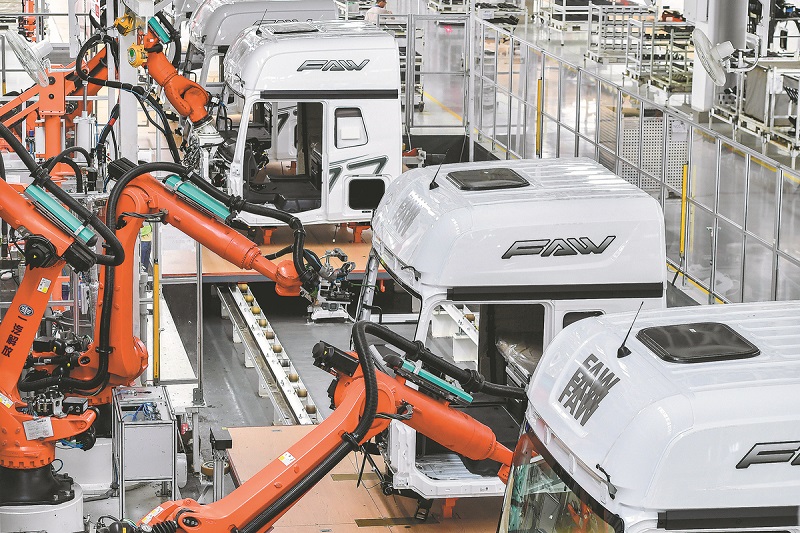Deputy sets sights on facilitating 'digital China'

Robots seen on the assembly line of automaker FAW Group in Changchun, Jilin province. XU CHANG/XINHUA
China's emphasis on nurturing new productive forces will help the country establish a beachhead in strategic emerging industries and inject strong impetus into the country's economic recovery, said national legislators, political advisers and industry experts.
The comments came as new productive forces are expected to be a key focus of deliberations when the top legislature and top political advisory body meet next week at the annual two sessions.
Liu Qingfeng, chairman of Chinese artificial intelligence company iFlytek, said the 14th Five-Year Plan (2021-25) period offers a crucial time window for leveraging new productive forces such as AI to address major societal problems.
As AI takes the world by storm, "we need to realize that more efforts are needed to study key technologies such as neuroscience interaction to fully tap the potential of generative AI," said Liu, who is also a deputy to the 14th National People's Congress.
Generative AI refers to computer algorithms that produce new text, images, code, videos or audio in a human-like fashion. It is the key technology behind text-to-video generation tool Sora that recently took the tech world by storm.
"Chinese companies must devote big, real money to the research and development of fundamental science to achieve breakthroughs in AI. The impact of this generative AI technology is no less important than that of the birth of the PC or the internet," Liu added.
Hong Qunlian, a researcher at the National Development and Reform Commission's Academy of Macroeconomic Research, said that compared with traditional productive forces that are driven by elements such as labor, land and capital, new productive forces are increasingly being led by technological innovation and new elements such as data.
"More efforts are expected to be made to encourage companies to achieve breakthroughs in chips and other technical bottlenecks, amid intensified global competition and geopolitical uncertainties," Hong said.
Wei Jianguo, former vice-minister of commerce, said, "If China wants to continue the path of rapid development, the country must plan ahead on new productive forces to seize the opportunity."
Wei, who is also a vice-chairman of the China Center for International Economic Exchanges, predicts that cultivating new productive forces will be key to major economies globally over the next five to 10 years.
Zhou Hongyi, founder of Chinese cybersecurity company 360 Security Group, said, "Promoting a deeper integration of AI and manufacturing, and empowering important industrial systems with generative AI technologies, have become an inevitable trend for China's modern industrial system to move toward high-quality development."
But it is also worth noting that as the digital economy and real economy become increasingly intertwined, new cybersecurity risks will emerge, and there will be demand for new solutions to safeguard the security of digital China, said Zhou, who is also a member of the 14th National Committee of the Chinese People's Political Consultative Conference.
Zhou Yuan, CEO of knowledge-sharing platform Zhihu and a member of the 14th National Committee of the CPPCC, said: "Nurturing new productive forces not only requires high-end scientific and technological talent, but also a large number of high-quality technical and skilled employees, and great craftsmen."
- Top legislature schedules standing committee session for late February
- China's top legislator meets with Uruguayan president
- Senior legislator surveys Anhui on formulating outline of provincial 15th Five-Year Plan
- China's top legislator meets with British PM
- NPC deputies see more engagement with top court



